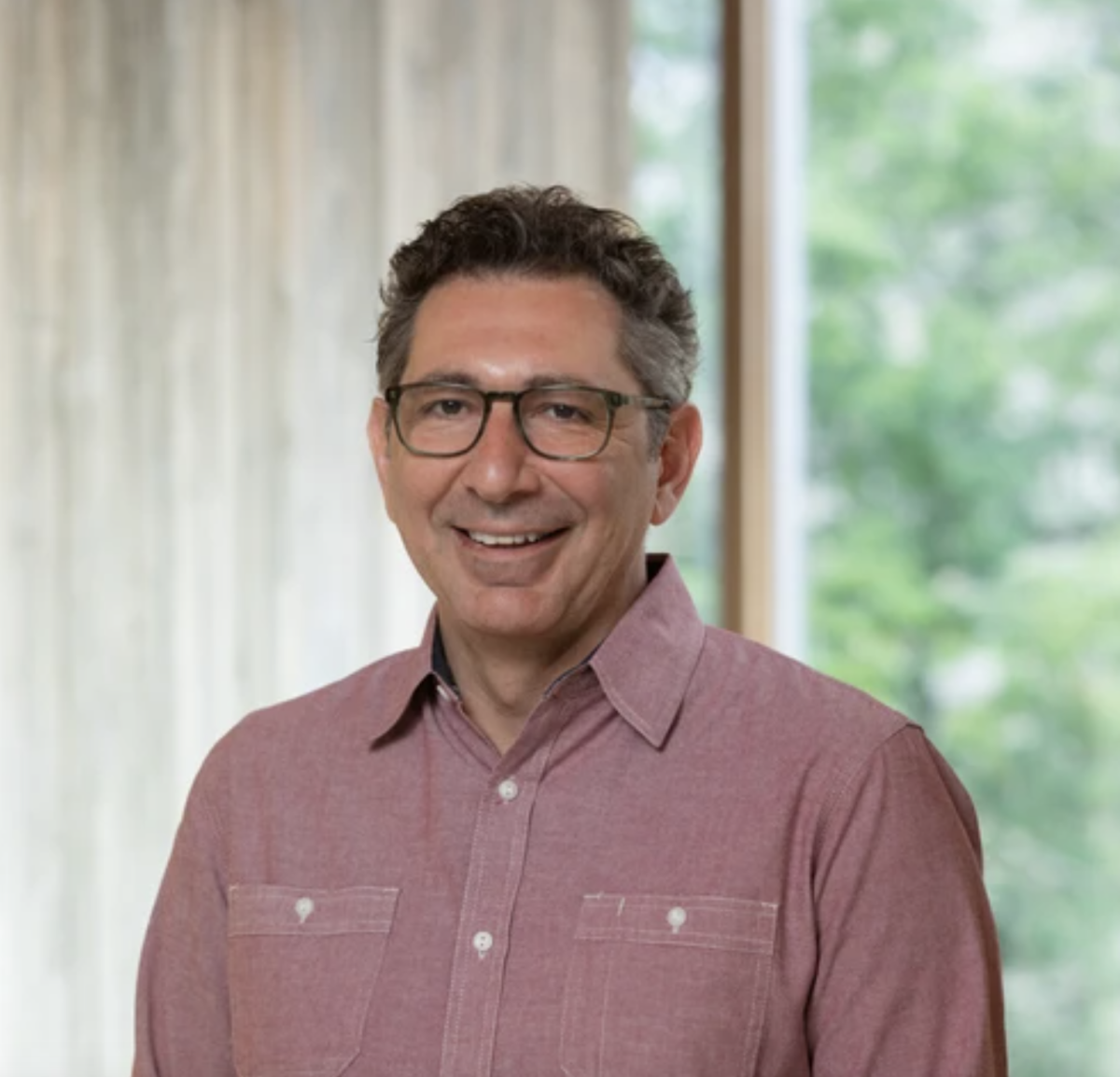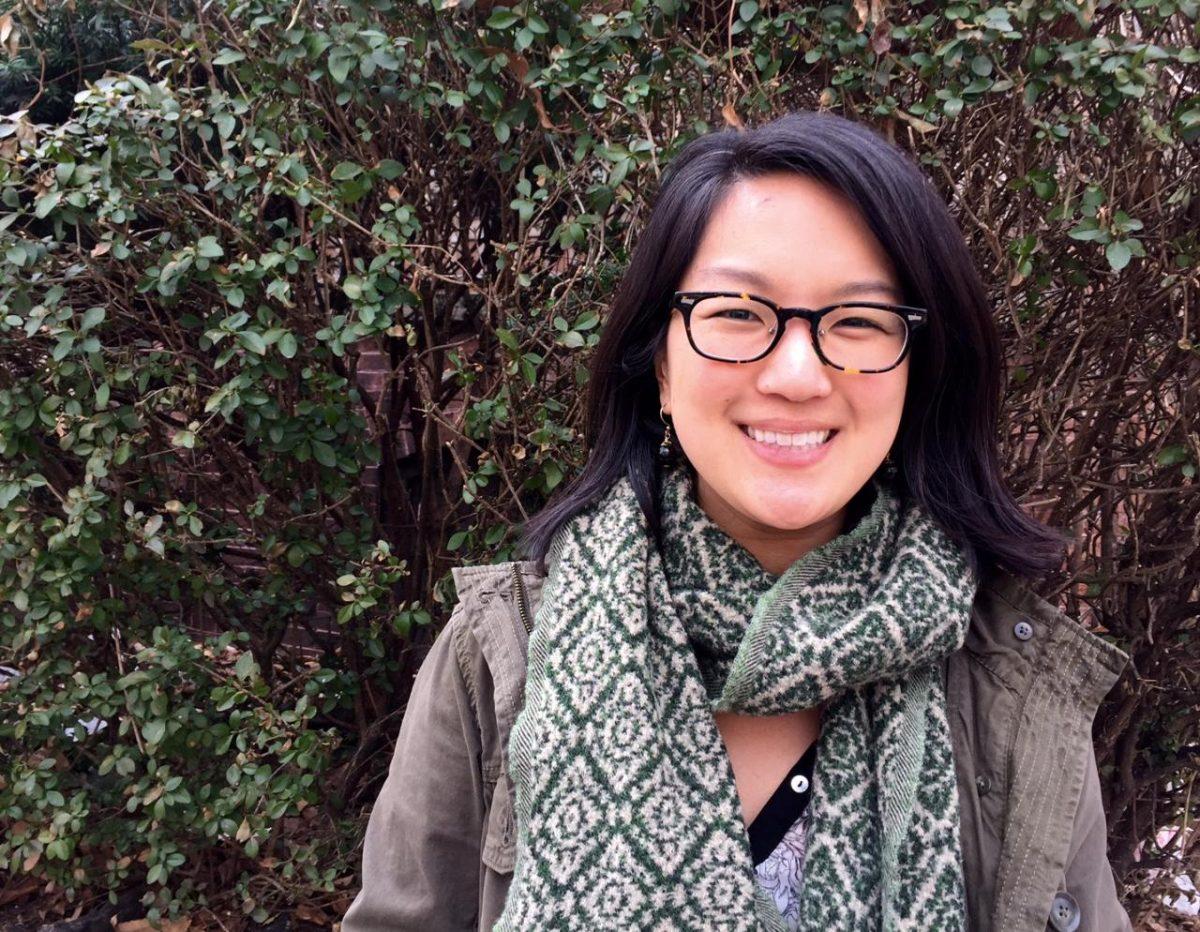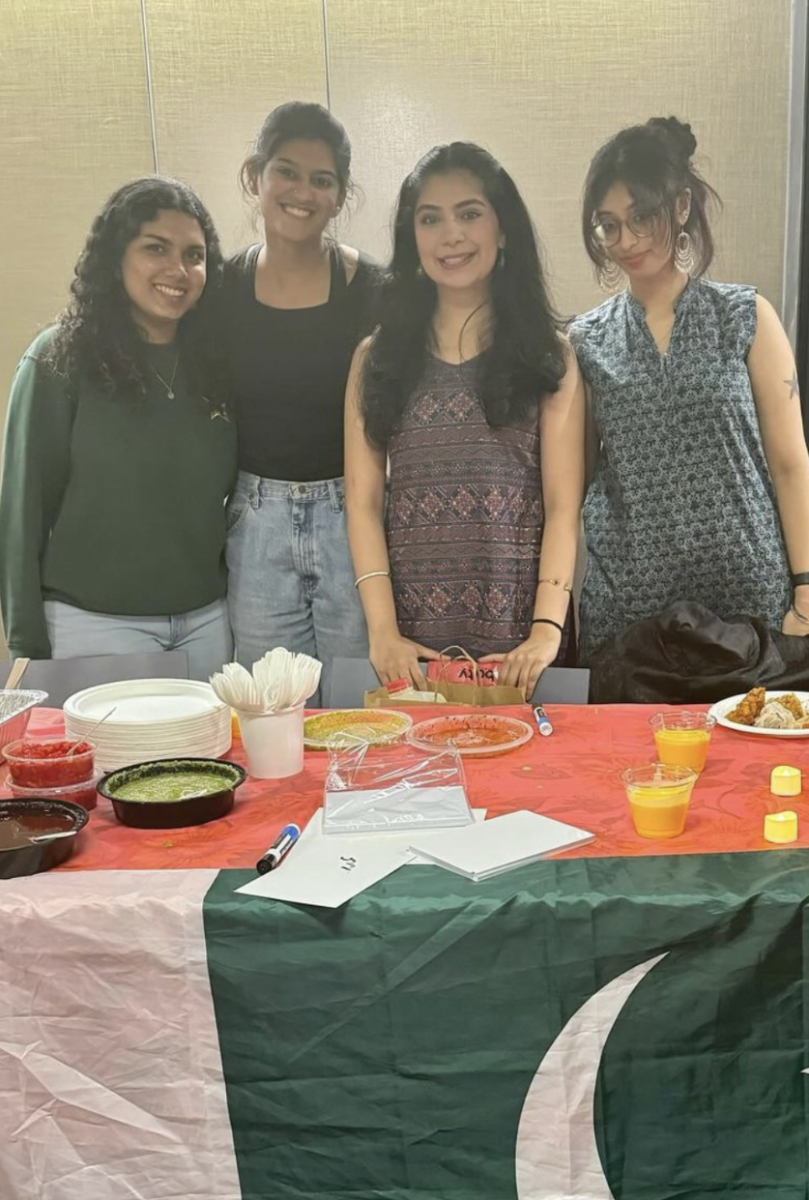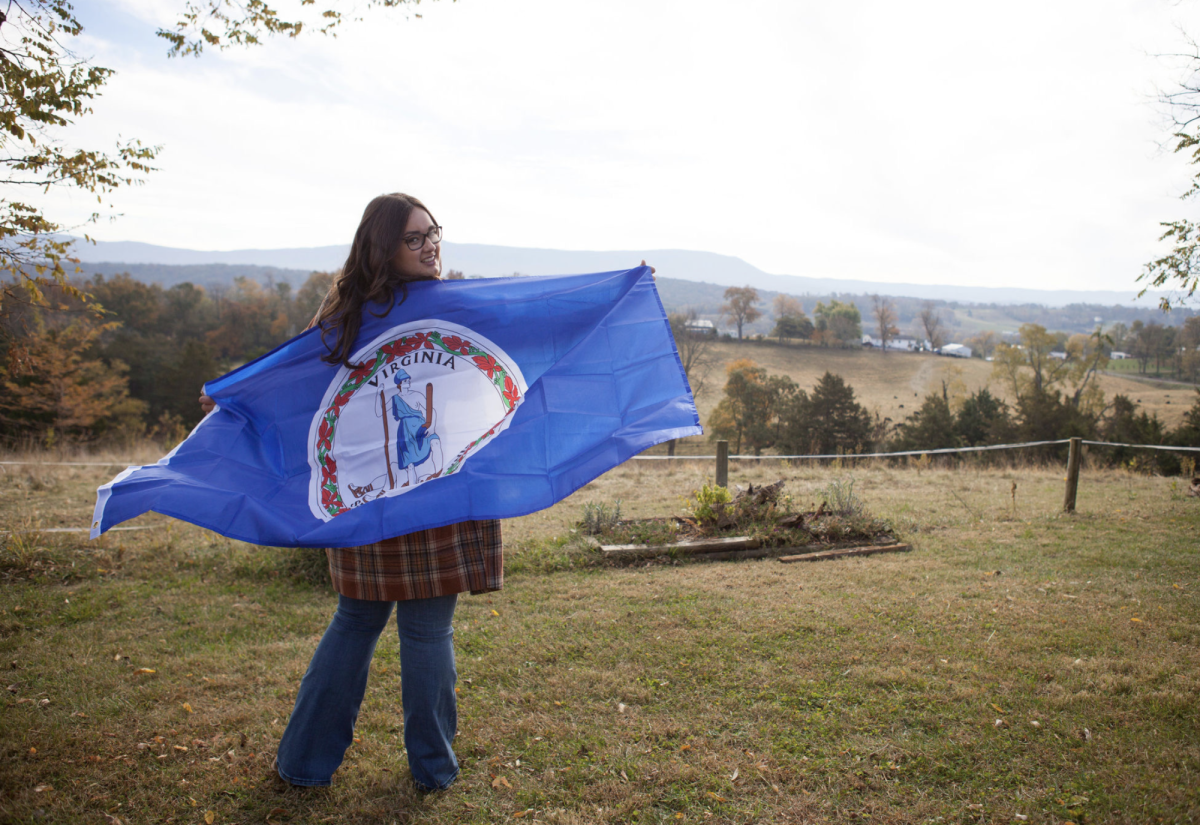For Professor Nadya S. Hajj, her professional research is also deeply personal. Her latest book “Networked Refugees: Palestinian Reciprocity and Remittances in the Ditigal Age,” is inspired by her own experiences. Her father grew up in a refugee camp, and she herself is a Palestinian refugee.
Despite her father’s success after coming to America, she said he never left behind his family or village, sending back a large portion of his income in the form of remittances to his family.
“He’s funded dozens and dozens, I would say, even hundreds of people going to college and starting small businesses,” Professor Hajj, who is the Whitehead Associate Professor of Critical Thought and associate professor of peace & justice studies, said.
She was inspired to write this book because she wondered how Palestinians would continue to survive as a community when they have been separated by war and other political dynamics that continue to work to marginalize them, and if they would lose the responsibility that drives them to take care of each other.
“Instead of falling into a pit of despair, … I was like, ‘Okay, how are younger people connecting with one another, and how are they talking about their problems and solving them?’” Professor Hajj said. “That’s what kind of inspired me to consider how digital spaces were being used.”
While terrible conditions in refugee camps made Professor Hajj weary of being “overly hopeful or optimistic,” she said younger generations of Palestinians gave her hope.
“I felt a lot of hope because younger generations of Palestinians, some of whom are living in the camps and some of whom have never been to the camps, or never been to Palestine, continue to feel strong connection[s] to one another and want to help and care for one another,” Professor Hajj said.
Professor Hajj’s book is now available as a free open access ebook. The central question of the book focuses on how refugees, specifically Palestinian refugees, solve collective dilemmas. These include meeting basic needs or receiving access to healthcare in a world order that exhibits a casual disregard for the lives and well being of refugees.
“To answer the question I looked specifically at how Palestinians use digital spaces like these really modern technologies, and that they melded them with old ways of connecting to one another through their family and kinship networks,” Professor Hajj said.
She looked at how refugees were able to generate trust in digital spaces by connecting with their families,even when thousands of miles apart. Digital spaces also gave refugees in camps a forum to request help from other members of the diaspora, including assistance with high-stakes needs like hospital bills and college tuition, that members in the community were likely to respond to in order to continue the patterns of reciprocity and pass on the success they have had abroad.
Professor Hajj’s new work is a continuation of her first book, “Protection Amid Chaos: The Creation of Property Rights in Palestinian Refugee Camps,” which also focused on how people solve collective dilemmas and create order in chaotic situations. However, her second book considers not only refugees still in camps, but also those who have migrated all over the world and are using digital technologies in creative ways.
Despite her book being primarily focused on Palestinians, many migrant communities have a similar way of generating trust in digital spaces.
“When I’ve been giving some book talks at different universities … I met a member of the Cuban diaspora living in California and another from Puerto Rico, and I met another that came from a small village in India, and they were like, ‘This is how a lot of poor migrant communities are doing it in other places too,” she said.
Professor Hajj worked with students across a range of majors, from political science, peace and justice studies, to computer science, that she was able to meet through the Sophomore Early Research Program and the Knapp Center’s Social Science Summer Research Program. According to her, she benefited from these research grants that helped her pay students fairly and leverage the summer that she wasn’t teaching.
“I really relied heavily on the expertise and strength of those CS students. And also some of my younger students knew a lot more about where people are on the Internet, what app or what platform people are actually using, and so it was really helpful in directing me to go to the right place,” she said.
She also had an informal faculty mentor that she credits, Professor of Sociology Peggy Levitt.
She made the conscious choice with her publisher to have this book be free, open access and in a digital format because she wanted it to be accessible to anyone who wants to read it.
“I hope this book is read by students that are undergraduate or high school students that are interested in the Middle East generally and refugee conditions generally, but also with a specific interest in Palestine. Beyond classrooms I also envision that this book might be of interest to actual peace-building practitioners,” Professor Hajj said.
The cover art on her book is also intentional and meant to amplify the voice of Sara Qaed, a political cartoonist who produces meaningful and politically powerful art that criticizes regimes in the Middle East.
“Her work is really powerful and says a lot about how young people are experiencing regimes in the Middle East, and she does it with really cool illustrations but also with poignant commentary in the way she illustrates. I felt really lucky she was open to kind of creating the cover art for me,” she said.
The last chapter of her book is different from most academic books because it offers what Professor Hajj considers a “blueprint for reciprocal activism.” She lists five steps that she hopes readers will take to embed themselves and show care and reciprocity even if they are not Palestinian and tries to encourage them to observe, judge and act —an idea drawn from the works of Paul Farmer, who recently passed away).
She suggested websites where readers can read and listen to stories people post. She also asks readers to think introspectively and judge themselves by pointing out that they are not a neutral observer, and tries to shift the power imbalance so the reader is able to see a direct connection between their own power and those suffering in other parts of the world. The last step is to encourage people to act in any way they can — not just monetary giving but also other services or skills that can be shared.
“That last chapter that offers that really practical advice for how to engage in peace building and activism, I hope, inspires everyday people that want to do good to read it too,” she said.
Professor Hajj will be giving a virtual talk at the Harvard Kennedy School on March 2 about her book.









